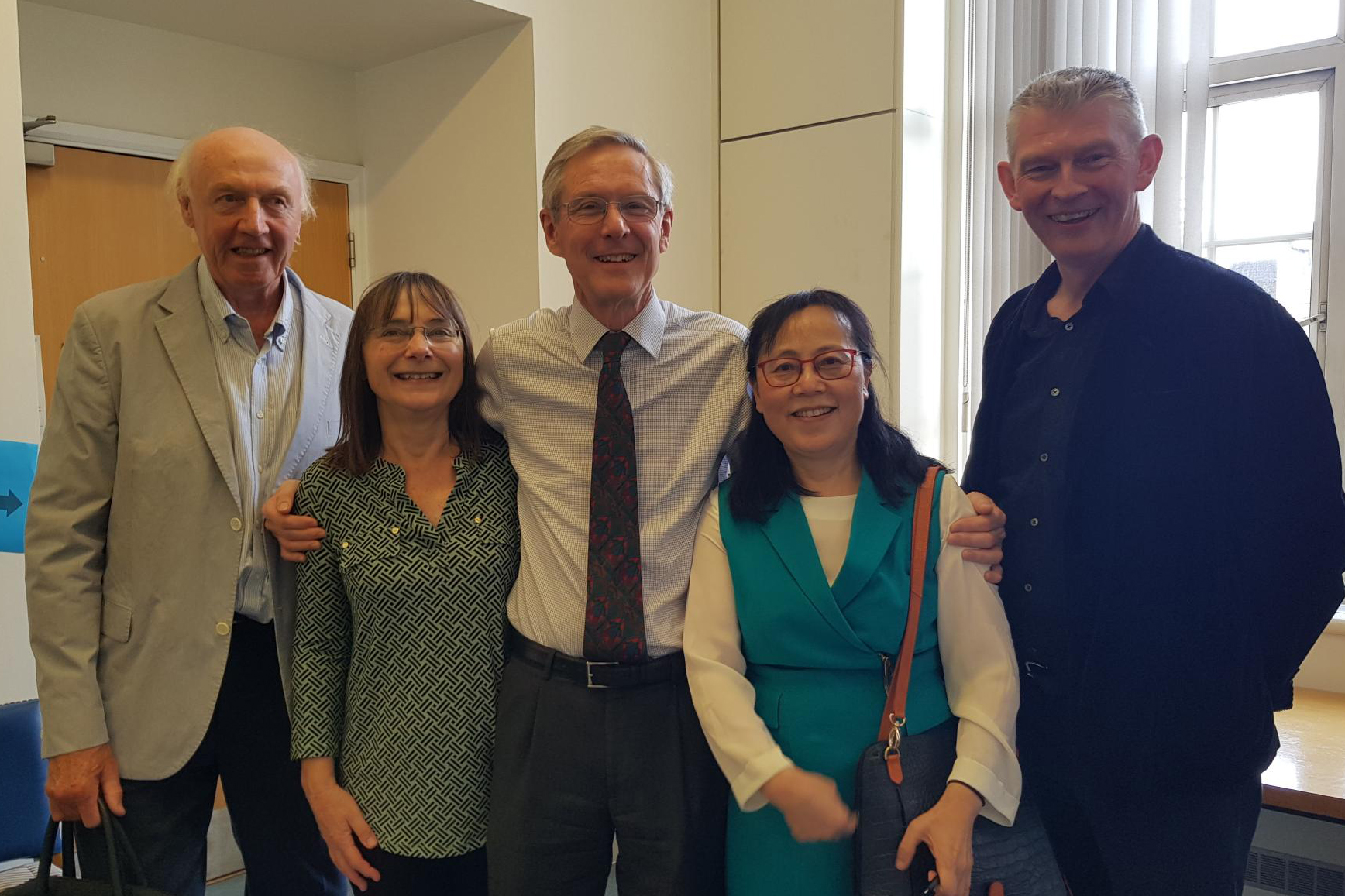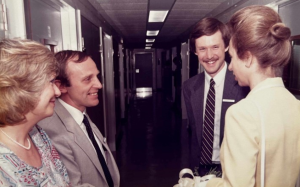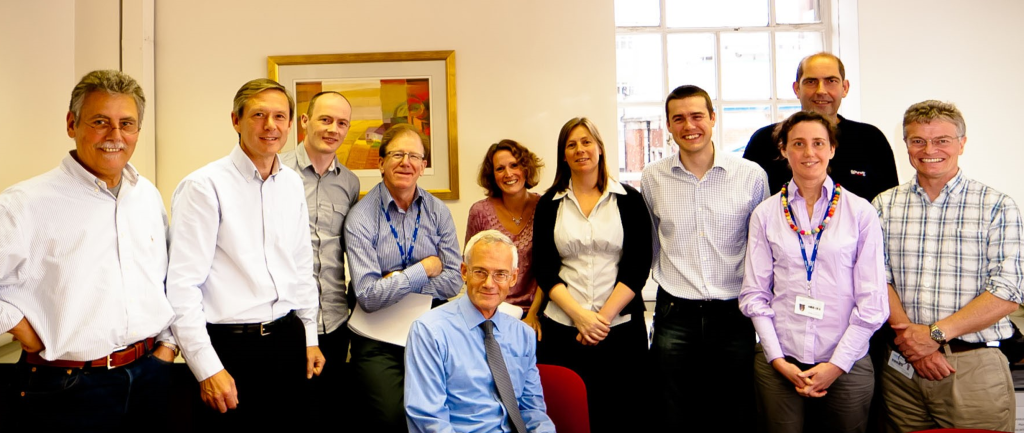
By retiring in July this year, Professor Paul Farrell leaves the St Mary’s Medical School almost 40 years after he arrived, and just a few months before Imperial leaves the building altogether. He leaves in his wake, a lasting legacy of virology and cancer research at Imperial.
Written by Dr. Rob White, Senior Lecturer in Virology
Paul obtained his PhD in Cambridge, working under Tim Hunt (subsequently a Nobel laureate) and Richard Jackson, working on control of protein translation, before moving to Yale, where he studied interferons with Peter Lengyel and tRNA promoters with Dieter Söll. However his career was shaped by his time at the Laboratory of Molecular Biology in Cambridge. In 1980, Paul joined the lab of John Gurdon at the MRC LMB in Cambridge but found an opportunity to help a team working under Fred Sanger, who had started sequencing Epstein-Barr virus; they needed a eukaryotic virologist. At the time, this sequencing was a major accomplishment – when it was uploaded in 1984, the EBV sequence was 10% of the total base pair content of the EMBL and GenBank sequence databases!
In 1986, Paul became head of the newly formed St Mary’s branch of the Ludwig Institute of Cancer Research, in the vacant top floor of the St Mary’s Medical school, while starting his own lab using EBV initially to study the relationship between genome structure and gene expression, towards understanding the link between EBV and cancer. His lab has made seminal discoveries around the fundamental characteristics of EBV gene expression, identifying and characterising key viral promoters and gene products, and how they manipulate the B cells EBV infects. Paul has remained the custodian of the EBV genome sequence, continually updating its annotation, and working with Paul Kellam at the Sanger institute in 2015 produced the first large scale analysis of EBV sequence variation, and contributed to the subsequent identification of viral SNPs that may partly explain the high prevalence of EBV-induced nasopharyngeal cancer in south-east Asia.

Paul has a long-standing passion for sailing, one that he has indulged with colleagues and friends alike, and where the line between work and play blurs. Even in the middle of the ocean his enthusiasm for EBV remains contagious, as he recruited his sailing partner – a retired oil industry analyst – to help analyse EBV genome sequences, though he has not (yet) achieved his career goal of getting funded to sail around the (tropical) islands of the world collecting EBV sequences to explore the EBV diversity of isolated populations.
Perhaps Paul’s most lasting legacy for Imperial was – upon the assimilation of the St Mary’s Medical School into Imperial College – the formation of the Section of Virology, whose subsequent expansion and development under Paul’s leadership, and that of Geoff Smith, has made it one of the main centres of virology research in the UK. His mentorship, guidance and support has helped – and continues to help – the career development of a huge number of students and staff within College and beyond. Paul was elected to the UK academy of Medical Sciences in 2003, chaired the research grants committed for Blood Cancer UK (formerly Leukemia and Lymphoma research) for 8 years, and continues to be held in high esteem by the EBV research community, giving the Henle Lecture for career achievement in 2020, and will be giving the inaugural Sir Anthony Epstein Memorial lecture at this year’s EBV conference. So we all wish Paul a happy and fulfilling retirement, a decision that still seems surprising as he almost looks younger now than he did when hosting Princess Anne to open the Ludwig Institute back in 1987.
